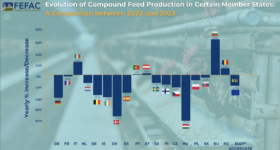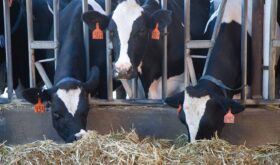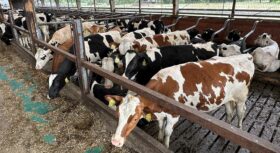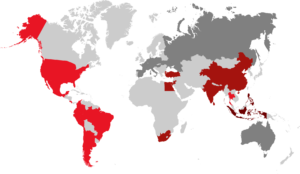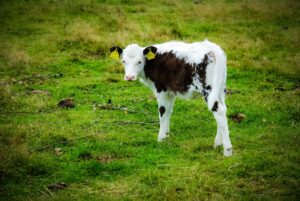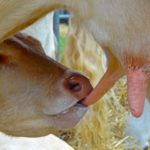By Lea Poppe, Technical Manager – Europe, EW Nutrition
Humans and animals protect themselves against diseases with specific antibodies (immunoglobulins). They receive antibodies from their mother or a vaccination (passive immunity) or produce them themselves after contact with a pathogen (active immunity). To be protected by a high passive immunity during the first weeks of life, a calf must receive high-quality colostrum with a sufficient amount of farm-specific antibodies as early as possible after birth.
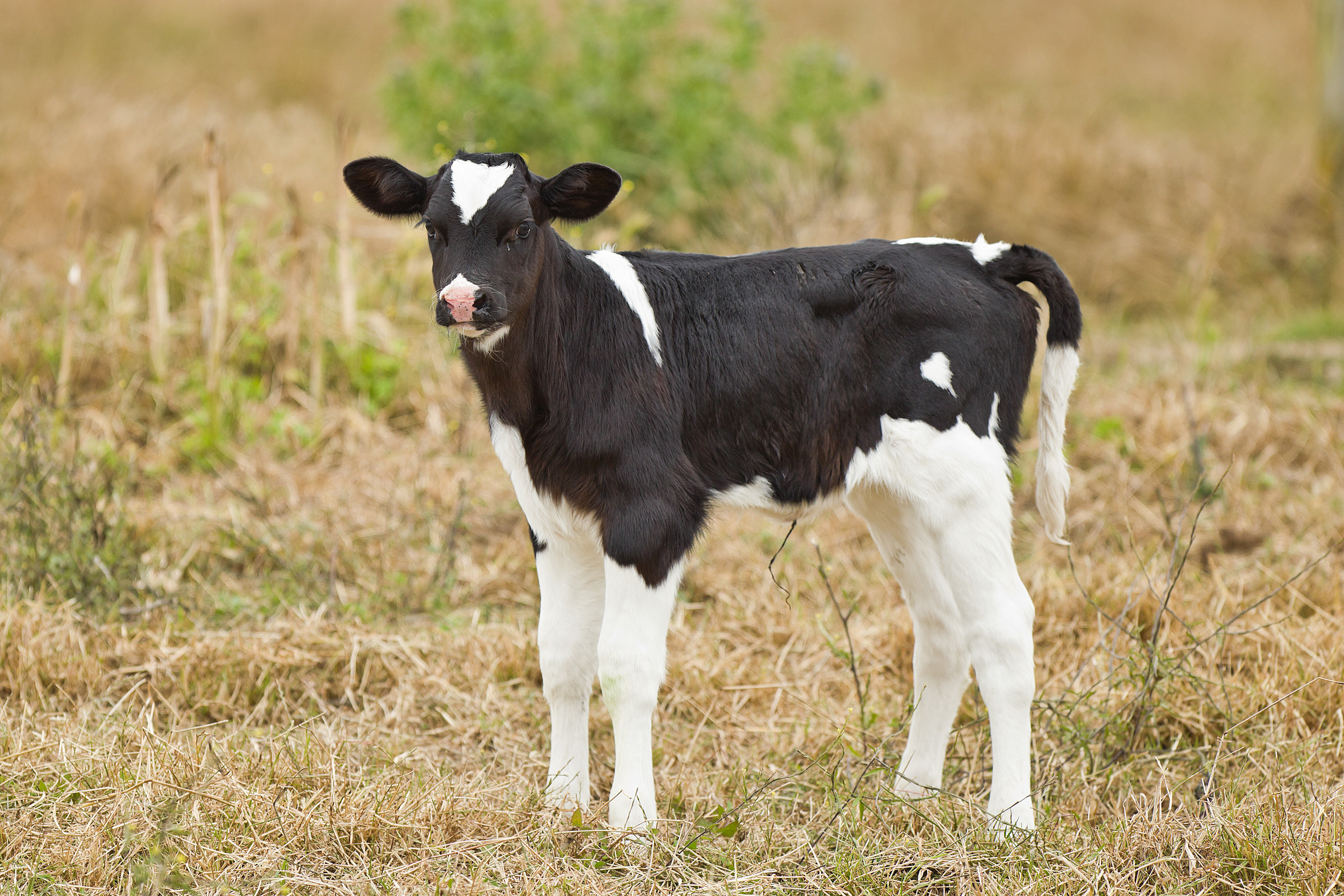
Undersupply with immunoglobulins lowers later performance
In 2015, the Ludwig Maximilian University of Munich examined the immunoglobulin supply of 1,242 newborn calves. This study showed that more than half of the calves were undersupplied: 23% severely (<5mg IgG / ml blood serum) and 36% slightly undersupplied (5-10mg IgG/ml). The supply situation was only satisfactory in 41% of the calves (> 10 mg IgG/ml).
Undersupply results in higher susceptibility to disease, higher mortality, and lower daily weight gain. This entails increased rearing costs. Besides, only healthy calves can achieve their full potential as adult animals. For example, when a calf experiences even mild diarrhea, it is expected to produce 344 kg less milk the first lactation (Welsch, 2016). Possible causes of diarrhea are infectious factors such as viruses (rota, coronaviruses), bacteria (E. coli) and parasites (cryptosporidia), but also non-infectious factors such as poor husbandry and feeding errors.
Survey confirms: Calves lack sufficient amounts of immunoglobulins
In December 2020, EW Nutrition conducted a telephone survey among 55 dairy cattle consultants and veterinarians from Spain, Germany, France, Poland, and Great Britain to review calves’ passive immunity.
This survey confirmed that calves lack sufficient amounts of immunoglobulins: 69.1% of respondents thought that calves were undersupplied. 76.4% of them saw a clear connection between early-occurring diarrheal diseases and calves’ insufficient passive immunity. Respondents came to these conclusions even though more than half of them thought that colostrum quality had not deteriorated during the last years (56.4%).
Immunoglobulins from the egg help calves against diarrhea
Egg immunoglobulins offer one way to support calves in case of diarrhea. Chickens form antibodies (IgY from “Immunoglobulins in Yolk”) against all disease pathogens they encounter and release them into the egg as an immunological starting aid for the chick. It does not matter whether the disease is relevant to poultry or cattle.
These antibodies can be used to improve poor-quality colostrum or to support the calf during acute diarrhea. Studies show that egg immunoglobulins act in calves’ intestines, where they can bind and block diarrhea pathogens (Ikemori et al., 1992).
IgY add value to colostrum
A feeding study with 39 female newborn calves took place on an 800-cow dairy farm in Brandenburg, Eastern Germany. The objective was to examine whether the IgY-containing complementary feed Globigen Colostrum effectively supports calves during the first critical period. For the experiment, all calves were given high-quality colostrum (4L within 2 hours after birth). During the first 5 days of life, the 19 calves in the test group additionally received 100g of the complimentary feed stirred into the colostrum (day 1) or the mixed colostrum (days 2 – 5).
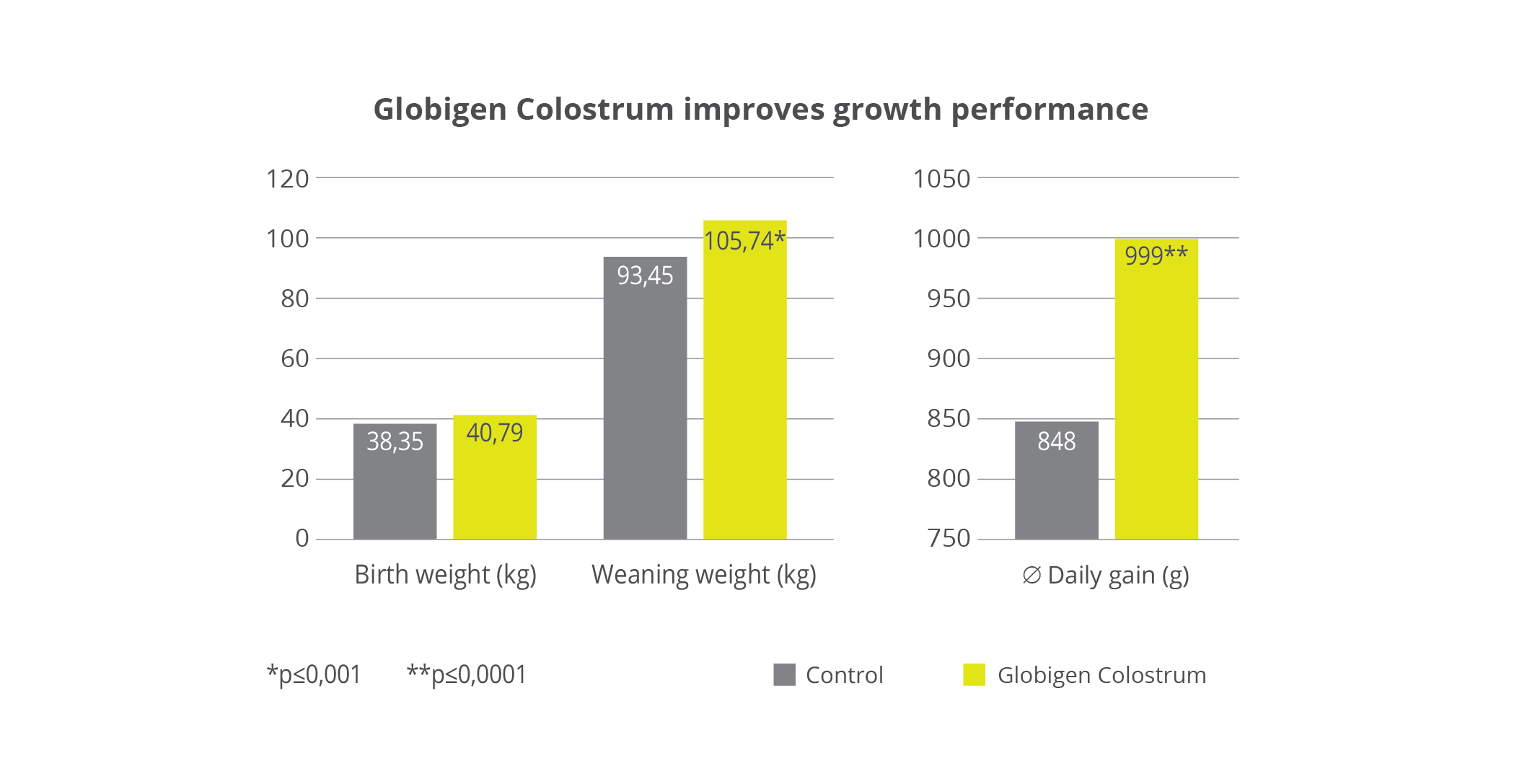
Result: The daily weight gain for the test group was 18% higher than in the control group (+ 151g). This resulted in 13% higher weaning weights (see above).
Three calves in the control group had mild diarrhea; in the test group, only one calf. However, antibiotics did not have to be used to treat the diarrhea.
IgY to reduce neonatal diarrhea
The IgY-based product Globigen Calf Paste was tested on two dairy farms in Russia. These trials focused on reducing neonatal diarrhea, which occurs in the first 2 to 3 weeks of life. The product, a 30ml oral syringe with a dosing ring, was administered at a rate of 10ml per day for the first three days of life. On the first farm in the Belgorod region, the trial and control groups consisted of 11 calves each. On the 10th day of life, the diarrhea incidence per group was checked: while 73% of the calves in the control group had diarrhea, requiring antibiotics, only 1 calf of the trial group had diarrhea, and no antibiotic treatment was needed. On the second farm in the Moscow region, where the groups encompassed 20 calves each and observations took place on the 5th day of life, results were similar: 75% of the control animals suffered from diarrhea, but just 3 calves in the trial group showed signs of diarrhea.
IgY support calves with acute diarrhea
In another trial, carried out with 38 calves on a dairy farm with 550 cows in North Rhine-Westphalia, Western Germany, the dietetic feed supplement Globigen Dia Stop was tested. This product is also based on egg immunoglobulins.
Only calves showing newborn diarrhea were used for this experiment. When diarrhea occurred, the 21 calves in the test group received 50g Globigen Dia Stop twice a day in addition to their milk drink. The diseased calves in the control group (17 calves) were given a rehydration solution, stirred into water, twice a day.
If the diarrhea could not be stopped after four days in the calves of either group, the animals were treated by a veterinarian.
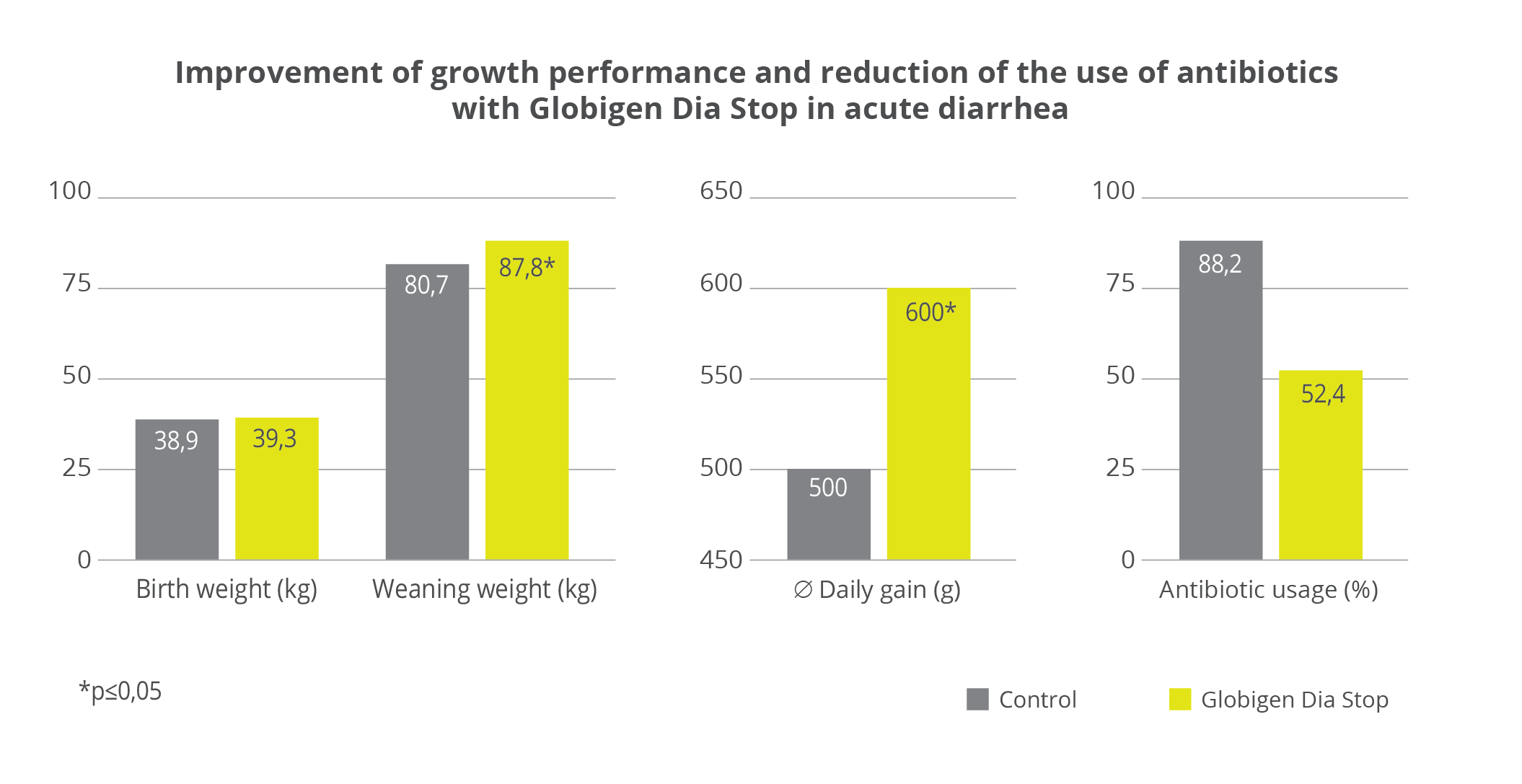
Result: In the test group, 100g (+ 20%) and thus significantly higher daily gains were achieved, which led to a 9% higher weaning weight. Furthermore, over 40% fewer calves had to be treated with antibiotics in the Globigen Dia Stop group than in the control group. (see above)
Conclusion: Egg immunoglobulins support gut health
The results of these studies indicate that the administration of egg antibodies (IgY) to calves supports intestinal health and has a positive effect on calves’ performance. Globigen supplementation can likely reduce diarrhea incidence and severity, especially in the critical first phase of the calves’ life – thus ensuring high performance in the long term.







